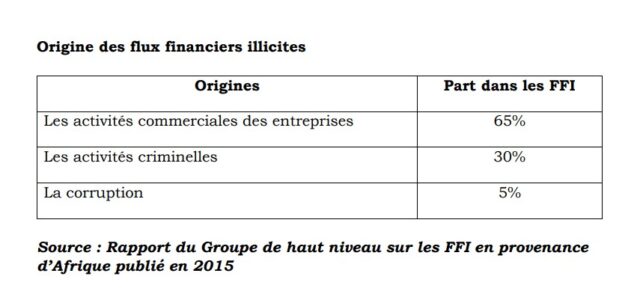- Part of the transition agenda
- It will be carried out by a committee of local experts with the support of UNCTAD.
- The study report is expected in 2024
- The mining sector is exposed to FFI in Burkina Faso
The Extractive Industries Transparency Initiative (EITI) is carrying out a study on Illicit Financial Flows (IFF) in the extractive sector. The official launch of the process took place on 20 March 2023 by the Minister Delegate in charge of the Budget, Mrs Fatoumata Bako/Traoré. The study is being carried out using the partner country method.
This study is part of the transition agenda drawn up in February 2022 by the Technical Commission for the preparation of draft texts and the transition agenda. At the end of a public consultation process, the commission selected a number of reforms to be implemented during the transition. Under the heading of economic governance, it proposed: “The diligence of an investigation into illicit financial flows in the mining sector”.
The agenda was adopted by the nation’s driving forces during the national conference. The activity was renewed in the transition roadmap and finally in the transition action plan. The EITI Burkina Faso and the Directorate General of Studies and Sectoral Statistics (Direction générale des Études et des Statistiques Sectorielles – DGESS) of the ministry responsible for mining were appointed to make it operational. But in the end, it was the EITI that was entrusted with the task.
“This study aims to highlight the main factors fuelling IFFs, the main channels used, estimate the amount of IFFs, identify the main destination countries for IFFs and the measures to be considered to curb the phenomenon”, according to a press release issued by EITI-Burkina Faso. The Minister quoted by the EITI stressed the pernicious nature of these illicit financial flows on the lives of the population. “The most immediate impact of illicit financial flows is the loss of revenue in terms of hospitals and schools built, roads constructed and jobs created”, she said.
She went on to say that the success of this study is fundamental for our country, which needs to dry up the sources of funding for terrorism. To ensure its success, the EITI intends to carry it out with the technical support of the United Nations Conference on Trade and Development (UNCTAD).
The EITI has set up a technical committee to conduct the study. The committee is made up of experts from many government departments, universities, international organisations and the private sector. The report of the study is expected in 2024.
Illicit financial flows refer to the movement of money of illicit origin across borders. These flows come from smuggling, counterfeiting, corruption, tax evasion, bribes, trafficking in drugs and human beings, racketeering, money laundering operations, etc. The United Nations Office on Drugs and Crime (UNODC) defines illicit financial flows as “financial flows whose origin, transfer or use are illicit, which embody an exchange of value and which cross national borders”.
“Africa has lost more than 1 trillion dollars to illicit financial flows (IFFs) over the past 50 years,” according to the report of the High Level Panel on IFFs from Africa published in 2015). This figure is equivalent to the official development assistance received by Africa over the same period. Of this amount, 65% comes from the commercial activities of companies, 30% from criminal activities and 5% from corruption. The mining sector, which generates a lot of flows, is one of the sectors most exposed to IFF in Burkina Faso.
Elie KABORE
#Mines_Actu_Burkina










